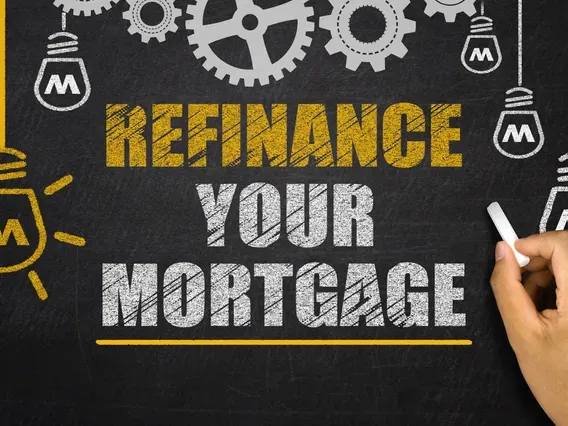Blog

Decoding Mortgage Refinancing: An In-depth Look at What, Why, When, and How
Mortgage refinancing provides many benefits, which include the ability to lower your monthly payment and shorten your loan term, get cash from your home equity, or save money on interest.
If refinancing your mortgage is in your plan, here's how it works.
What is Mortgage Refinancing
Mortgage Refinancing can sometimes be confusing, but to make it clear once and for all, when you refinance your mortgage, you're not redoing your loan. It is merely replacing your current mortgage with a new loan. You can either do this with your current or a different lender.
When you refinance your mortgage, you are replacing your current mortgage with a fresh one, generally with a different principal and interest rate. The newer mortgage used to pay off the old one, leaving you with just one loan and one monthly payment.

Why Refinance Your Home Loan?
People refinance their houses for a variety of reasons. To save money in the long run, you can change your loan term, receive a better interest rate, and switch loan types. You can even cash out the equity in your property and spend the funds as needed. You can employ a cash-out refinance to tap into the equity in your house, or you can check into a rate and term refinance to receive a lower interest rate and monthly mortgage payment. It can also be used to shorten your loan and remove or add another person to the mortgage, which is common in divorce cases. The key reason for a refinance is to acquire better loan terms than previously.
When to Refinance?
Knowing when to refinance your mortgage is critical. It is determined not just by your current financial situation and credit score, but also by the general financial economic status as such market fluctuations and current interest rates.
Home loan refinancing will make good financial sense if you intend to stay in your house for many years, extending your loan term to reduce monthly payments or using the equity you've generated to finance home upgrades.

How to Refinance?
The refinancing process is almost similar to the mortgage loan application process. The lender will examine your finances to evaluate the level of risk and eligibility. Before you jump right on it, here's what you need to do.
Set your Goal
Have a clear financial goal. There should be a compelling purpose for refinancing, whether it's to lower your monthly payment, shorten your loan term, or cash out equity for home improvements or debt management.
Check your Credit History
Good credit score is everything. You'll need to qualify for a home loan refinance just like you would for your initial home loan. A good credit standing will likely help you to get approval.
Determine your Home Equity
Your home equity is the total worth of your home less the amount owed on your mortgage. Check your most recent mortgage statement to determine your current balance. You'll obtain lower rates and lower costs if you have at least 20% equity in your house. The lender will view your loan as less risky if you have greater equity in your property.
Search for Different Lenders
Obtaining estimates from at least three mortgage providers will assist you in maximizing your savings while refinancing. Along with comparing interest rates, consider the various loan fees and whether they will be paid upfront or rolled into your new mortgage. Lenders may offer no-closing-cost refinances in exchange for a higher interest rate. So this is an important decision to make when you are deciding to refinance.
Organize your Paperwork
Having your documentation ready before refinancing a mortgage might make the process run more simply and quickly. Prepare pay stubs, federal tax returns, bank/brokerage statements, and any other documents required by your lender. Your mortgage lender will also consider your credit score and net worth, so be transparent about all of your holdings and liabilities.
If you are using your home as a financial asset, it can be an excellent move to refinance a mortgage if it lowers your monthly payment, shortens the duration of your loan, and allows you to develop equity faster. When utilized correctly, it can also help in reducing debt.
Ready to refinance your mortgage? Get started with EJN Financial and check out your refinance options to help you decide what makes financial sense for you.


